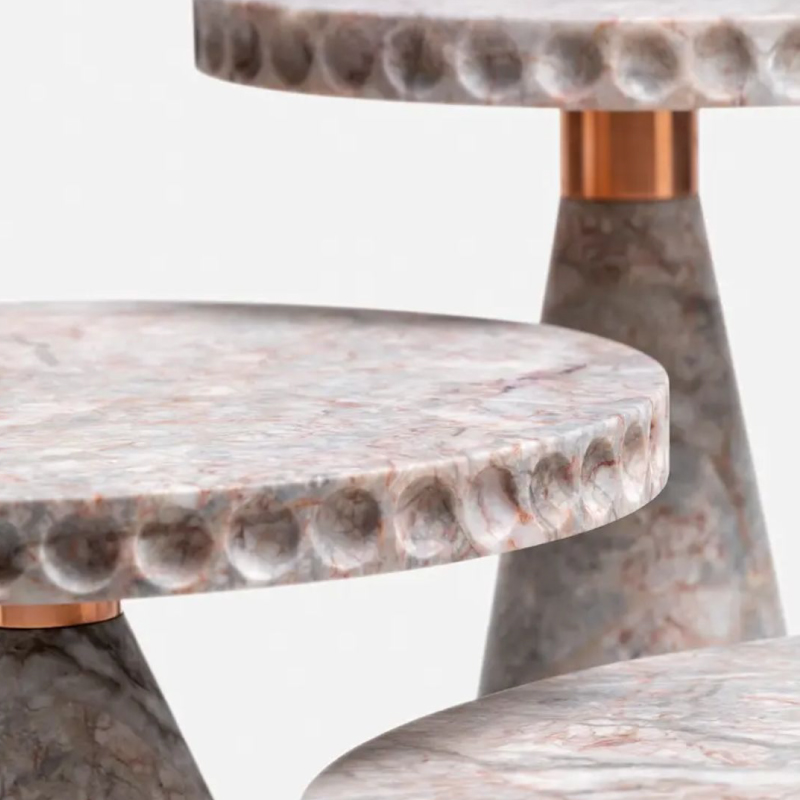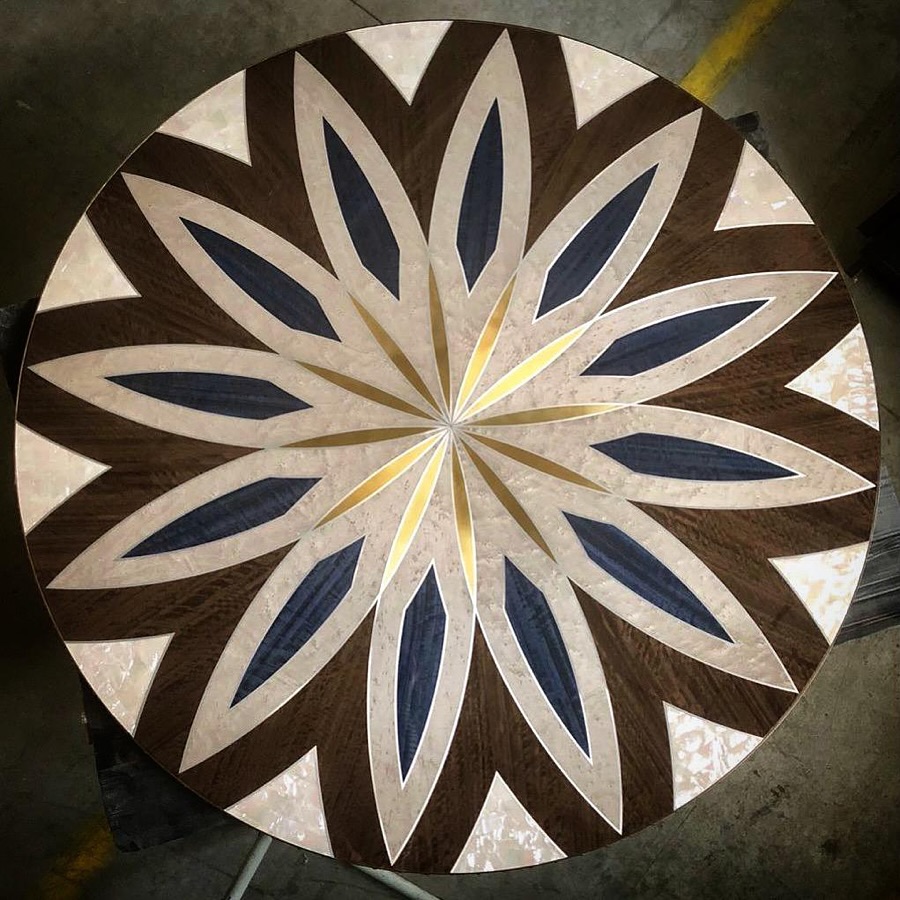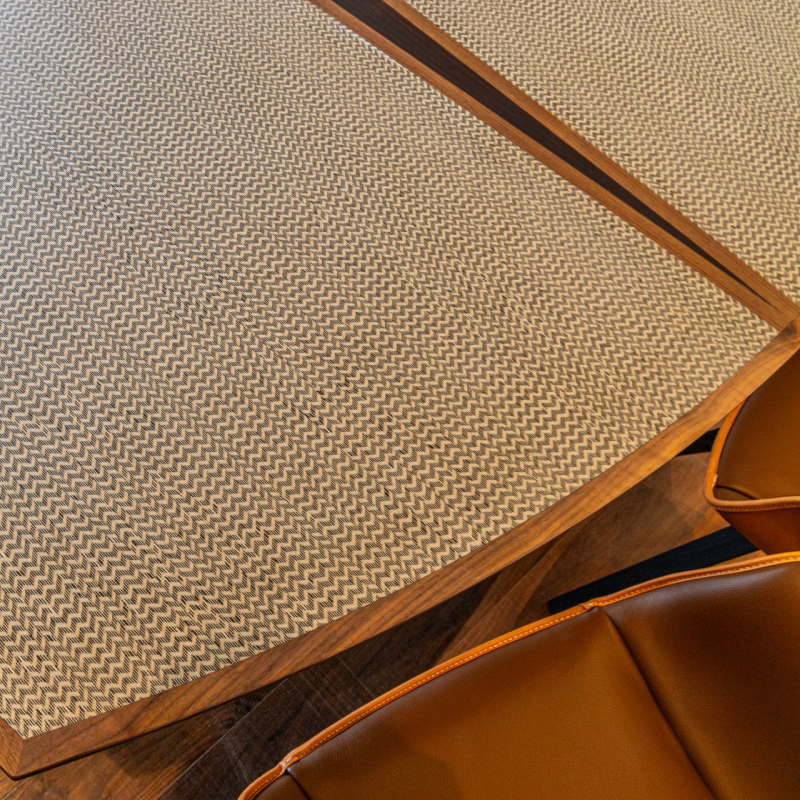When it comes to interior design, one of the most important decisions you'll make is whether to go for bespoke furniture or ready-made furniture. This blog post will explore the differences between these two options and explain why custom design is often the better choice.
Whether you're moving into a new home or giving your current space a makeover, it's essential to understand the pros and cons of each option. This knowledge will help you make decisions that suit your needs and preferences.
Why Choose Custom Design?
Bespoke furniture offers something that mass-produced pieces usually don't: personalization and uniqueness. With custom design, you have the freedom to choose every detail of your furniture, from the materials used to the dimensions and finishes. This level of customization ensures that your furniture perfectly matches your style and lifestyle.
But it's not just about looks. Custom design also brings practical benefits. Unlike ready-made furniture, which may not always fit your space or serve your specific requirements, bespoke solutions are tailored to meet your exact needs. This means better functionality and efficiency in how you use your living or working environment.
Who Can Benefit from Bespoke Solutions?
While this article primarily focuses on home décor, it's worth mentioning that custom design has applications beyond residential spaces. Industries like construction and education can also benefit greatly from tailored solutions.
In these sectors, bespoke designs can optimize workflows, enhance productivity, and create environments conducive to learning or building activities. By understanding the unique requirements of different industries, designers can develop customized spaces that promote functionality and efficiency.
This blog post will delve deeper into these topics—exploring how bespoke solutions can transform not only homes but also various industries.
Understanding Bespoke Furniture
Bespoke furniture design represents the pinnacle of personalization in the world of interiors. Unlike off-the-shelf options, bespoke or custom-made furniture is tailored to meet specific needs, preferences, and space requirements. This level of customization ensures that each piece is unique, reflecting the owner's taste and lifestyle.
Characteristics of Bespoke Furniture
- Uniqueness: Every bespoke item is one-of-a-kind, crafted specifically for an individual client.
- Tailored Fit: Designed to fit perfectly within the intended space, considering dimensions and layout.
- Personalized Aesthetics: Allows for selection of materials, colors, finishes, and styles that match personal preferences.
The Customization Process
The journey of creating bespoke furniture begins with a detailed consultation between the client and the designer. This process involves:
- Conceptualization: Collaborating on designs that align with the client's vision.
- Material Selection: Choosing premium materials that suit both aesthetic preferences and functional needs.
- Craftsmanship: Artisans bring the design to life through meticulous craftsmanship, often involving hand-finishing techniques.

Materials and Craftsmanship
Bespoke furniture companies like Interni, which has over 50 years of global experience in offering bespoke luxury interiors, employ high-quality materials such as solid wood, metal, glass, and luxury textiles. The craftsmanship involved is typically top-notch, with skilled artisans dedicating significant time to ensure every detail is perfect. This dedication results in pieces that not only look stunning but are built to last.
Advantages and Disadvantages
Advantages:
- Exclusivity: Ensures a unique product that stands out.
- Perfect Fit: Ideal for unconventional spaces or specific design themes.
- High Quality: Superior materials and craftsmanship result in durable products.
Disadvantages:
- Cost: Typically higher due to the custom nature and quality of materials.
- Time: Longer production times as each piece is made-to-order.
Understanding these aspects highlights why many opt for bespoke solutions despite potential drawbacks. For those looking for a seamless transformation in their interior spaces through expert coordination involving diverse companies and architects, exploring options like Interni's Turnkey Projects can be an excellent choice.

Exploring Ready-Made Furniture
When considering furniture options, ready-made furniture is a term often encountered. This type of furniture is typically mass-produced, designed to cater to the broad market with standard sizes and styles. The defining characteristic is its immediate availability, allowing consumers to purchase and use it without the wait associated with custom designs.
Materials Used
Ready-made pieces generally utilize materials that are readily available and cost-effective. Commonly used materials include:
- Particleboard or MDF (Medium-Density Fiberboard)
- Veneers for aesthetic appeal
- Laminates for durability
- Metals like aluminum or steel for frames
- Synthetic fabrics or leather substitutes
These materials help manufacturers keep production costs low while providing a variety of styles and finishes.
Limitations in Personalization
One of the significant drawbacks of ready-made furniture lies in its limited capacity for personalization. Since these pieces are produced in bulk, they lack the uniqueness found in bespoke furniture. Consumers often face challenges when trying to fit these pieces into specific spaces or align them with unique interior aesthetics. Standard sizes may not accommodate every room layout, leading to potential mismatches in scale and style.
Advantages of Ready-Made Furniture
Despite limitations, ready-made furniture offers several benefits:
- Affordability: Mass production reduces costs, making these pieces budget-friendly.
- Convenience: Immediate availability allows for quick furnishing solutions.
- Variety: A wide selection of styles ensures something for almost every taste.
Disadvantages of Ready-Made Furniture
Yet, there are downsides to consider:
- Lack of Uniqueness: Designs are often generic and widely available.
- Limited Durability: Lower-cost materials can result in shorter lifespan.
- Inflexibility: Standard sizes might not suit all spaces or personal needs.
Exploring the characteristics and implications of ready-made furniture provides valuable insights into its role in the broader landscape of home furnishings. Understanding these aspects helps you make informed decisions tailored to your preferences and requirements.
Comparing Bespoke and Ready-Made Furniture
Design Flexibility:
When comparing bespoke furniture vs. ready-made furniture, design flexibility stands out as a significant differentiator. Bespoke furniture offers unparalleled freedom in design. You can choose every element, from the type of wood to the fabric and finish, ensuring that each piece perfectly fits your space and aesthetic preferences. This level of customization allows for unique creations that reflect personal style or specific functional requirements.
In contrast, ready-made furniture comes with predefined designs and limited options for customization. While some manufacturers offer choices in color or minor modifications, the core design remains unchanged, often leading to compromises on individuality.
Cost Comparison Over Time:
Initial costs might make ready-made furniture seem more appealing. Mass production and standardized materials contribute to lower prices upfront. However, these pieces may require replacement sooner due to wear and tear or trends going out of style, potentially increasing costs over time.
On the other hand, bespoke furniture involves a higher initial investment but pays off in terms of durability and timeless appeal. Crafted with high-quality materials and tailored craftsmanship, bespoke pieces are designed to last for generations, offering long-term value that outweighs the initial cost difference.
Evaluating these factors highlights why custom design often wins the debate between bespoke furniture vs. ready-made options.

The Role of Interior Design in Customization
Bespoke furniture and interior design have a special connection that focuses on creating spaces that are both practical and visually appealing. It's important to combine furniture design with the overall interior style to achieve a harmonious look that enhances the atmosphere and meets the needs of its occupants.
Integration with Aesthetics
When designing bespoke furniture, attention to detail is crucial. It's not just about making a piece that looks good, but also ensuring it goes well with the room's theme, color scheme, and architectural features. Custom-made pieces can be customized to match specific design ideas, offering flexibility that off-the-shelf options simply cannot provide.
Reflecting Regional Trends
Bespoke designs have the ability to capture and reflect regional trends, adding a layer of cultural depth to any interior space. For example, in areas like the Middle East, incorporating local patterns or using traditional craftsmanship methods can result in furniture that resonates with regional sensibilities while maintaining modern elegance.
Incorporating bespoke furniture into an interior design plan allows for endless possibilities in terms of style, function, and cultural representation. This approach not only personalizes spaces but also ensures they meet the highest standards of quality and uniqueness.
Renowned companies like BOLICI® and INTERNI, have excelled in integrating bespoke furniture with their luxury interior projects worldwide. Their work showcases how customized designs can seamlessly blend global trends with local nuances, particularly in regions such as the GCC where cultural values are prominent.
The role of bespoke furniture in interior design goes beyond just looking good. It's about creating an experience that reflects personal preferences while embracing cultural identity and practicality. This combination is what makes bespoke furnishings special, making them an invaluable asset in designing personalized living spaces that are both attractive and meaningful.
INTERNI specializes not only in residential projects but also excels as a hotel interior fit-out contractor and provides complete yacht design solutions across Dubai and the GCC. Their multi-award winning approach underscores their commitment to quality and excellence in every project they undertake.
Case Studies from Leading Companies
BOLICI®: Defining Bespoke Luxury Worldwide
BOLICI® is a leading company in the world of bespoke luxury projects. With over 50 years of experience, this Rome-based company has mastered the art of crafting interiors that cater to ultra-high net worth clients globally. The brand is known for its ability to combine traditional craftsmanship with modern design, resulting in pieces that are both timeless and contemporary.
By focusing on bespoke solutions, BOLICI® ensures that each project is unique, reflecting the personal tastes and preferences of its clients. Their commitment to quality and attention to detail have earned them numerous awards and a reputation for delivering unmatched luxury.

INTERNI: Mastering the GCC Market
INTERNI has established itself as a key player in the GCC region, thanks to its deep understanding of local market demands. With over 15 years of experience, the company has successfully navigated the complexities of regional aesthetics and regulations.
INTERNI's approach involves combining global design trends with Middle Eastern influences, creating interiors that resonate with local culture while still appealing to an international audience. This ability to adapt bespoke designs to reflect regional trends has made them a preferred choice for high-end projects across Saudi Arabia, UAE, Kuwait, Qatar, Bahrain, and Oman.
Not only does INTERNI specialize in residential spaces, but they also excel in providing expert interior fit-out services specifically tailored for luxury brands. Their retail solutions are crafted by industry masters, ensuring an elevated brand experience.
Additionally, INTERNI's expertise extends into FF&E and procurement, utilizing their global network of trusted suppliers and direct produced furniture to effectively manage projects of any size.
Conclusion
When deciding on furniture, it's important to consider your own needs and preferences. Bespoke Furniture vs. Ready-Made: Why Custom Design Wins highlights the significance of selecting choices that match your desire for uniqueness and quality. Custom design is ideal for those who appreciate individuality and craftsmanship, providing a perfect fit for any room. By choosing custom solutions, you're investing in items that not only improve your living space but also represent your personal style and taste. Welcome the uniqueness and elegance that bespoke furniture adds to your home.
FAQs (Frequently Asked Questions)
Bespoke furniture refers to custom-made pieces designed specifically to meet the unique preferences and requirements of an individual. It involves a detailed customization process, utilizing high-quality materials and craftsmanship to create one-of-a-kind furniture that perfectly fits the intended space.
The advantages of bespoke furniture include personalized design, superior quality, and the ability to reflect individual style and regional trends. Custom pieces often provide better functionality and durability compared to mass-produced options, which can be limited in personalization.
Ready-made furniture typically comes in standard sizes and designs, which can limit personalization and uniqueness. Additionally, mass-produced items may not be made from high-quality materials, potentially affecting their durability and overall aesthetic appeal.
While bespoke furniture may have a higher upfront cost due to its custom nature and quality craftsmanship, it often proves more cost-effective over time due to its durability and functionality. Ready-made furniture may seem cheaper initially but could require replacement sooner.
Interior design plays a crucial role in customizing furniture as it ensures that pieces align with the overall aesthetics of a space. Bespoke designs can incorporate regional trends, such as Middle Eastern nuances, enhancing the harmony between the furniture and the interior environment.
Case studies from companies like BOLICI® highlight innovative approaches to bespoke luxury projects worldwide, while INTERNI's success in the GCC region underscores the importance of understanding local market demands. These examples demonstrate how tailored solutions can effectively cater to diverse client needs.
Bespoke Furniture vs. Ready-Made: Why Custom Design Wins